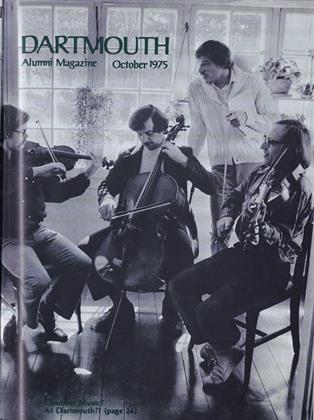It was post-Vietnam for the American public, sickened and outraged by the mendacious war which had killed so many hundreds of thousands and weakened our country financially and physically. And now President Ford and the Pentagon should abandon diplomacy and send ships, planes, helicopters, and bombs into Cambodian territory to rescue a few men and the Mayaguez, a 31-year-old cargo ship, unsleek, with engines frequently breaking down. It had been shot at, boarded, and captured in the Gulf of Thailand by the revolutionary government forces of Cambodia.
And so the BLU 82, a 15,000-pound bomb, the biggest explosive in the U.S. arsenal, should be dropped on Koh Tang, the Cambodian island, over which a black mushroom cloud arose to resemble what it nearly was, an atomic bomb. Five-inch American guns should rake it, and American aircraft should strafe it with rockets and lay down white smoke. Should B52's, gassed up, bomb bays loaded, crews on line, bomb the Cambodian mainland? Rockefeller and Kissinger said yes; Ford, no.
And so American lives were spared: only 15 killed in action, three missing in action and presumed dead, 50 wounded in action, and 23 airmen killed in a helicopter crash en route for the Mayaguez operation.
American lives and honor saved or immoral imperialism reasserted? The story demanded to be told objectively. And it has been told with commendable detail and journalistic verve by Rowan, a Far-Eastern bureau chief for Time magazine. With insomnia-induced thoroughness he sailed aboard the Mayaguez after her recovery and conducted interviews with captain and crew, and later with the Washington officials responsible for the decision to attack.
President Ford gave him time for a taping session at the White House. The crew of the Mayaguez answered thousands of questions, recorded aboard ship. Captain Miller of the Mayaguez spent countless hours on the bridge talking into the Rowan tape recorder and asked that part of the royalties from the book be donated to a fund being established by him for the families of men killed on Koh Tang.
President Ford, under soul-searing pressure for four days, described the Mayaguez involvement as being "the turning point in his presidency." He was and is convinced that he did right. Rowan treats him, the military, and Kissinger objectively and dwells with dramatic matter-of-factness on tension, suffering, heroism, and split-second decisions involving life and death. This book, the product of a tireless reporter writing lucidly to meet a self-imposed deadline, appeared completely clothbound only four days after the delivery of the manuscript, a record to turn all publishers green with envy.
THE FOUR DAYS OFMA YAGUEZ. By Roy Rowan '41.Norton, 1975. 244 pp., illus. $7.95
 View Full Issue
View Full Issue
More From This Issue
-
 Feature
FeatureBefore the Revolution
October 1975 By ALBERT F. MONCURE JR., RONALD V. NEALE -
 Feature
FeatureA Dialogue for Autumn
October 1975 By COREY FORD -
 Feature
FeatureQuartet in Residence
October 1975 By DAVID WYKES -
 Feature
FeatureA MEMORANDUM
October 1975 By JAMES L. FARLEY '42 -
 Article
ArticleThe College
October 1975 -
 Article
ArticleThe Trolley Never Stopped Here
October 1975 By GEORGE W. HILTON
Books
-
 Books
Books"The reorganization of Mathematics in Secondary Education"
August, 1923 -
 Books
BooksAlumni Articles
June 1956 -
 Books
BooksTHE AMERICAN DEMOCRATIC TRADITION: A HISTORY
MAY 1964 By HARRY N. SCHEIBER -
 Books
BooksDREAM AND THOUGHT IN THE BUSINESS COMMUNITY, 1860-1900.
January 1957 By JAMES F. CUSICK -
 Books
BooksGRANITE. Number 3, Summer 1972.
JANUARY 1973 By JOHN HURD '21 -
 Books
BooksTHIRTY-FIVE DARTMOUTH POEMS.
JANUARY 1964 By PHILIP BOOTH '47

